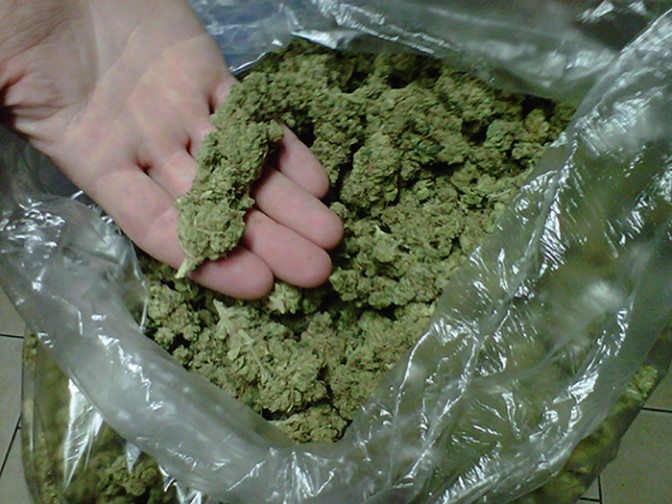Marijuana Legalization versus Decrim

The majority of Americans support alternatives to cannabis criminalization. There are multiple policy options to choose from, including depenalization, decriminalization, medicalization and legalization. In recent years, voters (and, in some cases, state lawmakers) in jurisdictions throughout the country have embraced these alternative policies. Here’s a look at these approaches, how they differ from one another and the places where they’ve been successfully implemented.
LLEP: This acronym stands for “lowest law enforcement priority” (a.k.a. deprioritization). While the passage of LLEP measures don’t amend criminal statutes prohibiting the possession and use of cannabis per se, they do express citizens’ intent to have local police de-emphasize marijuana law enforcement. Initially popularized a decade ago in cities like Oakland and Santa Barbara, Calif., Denver and Seattle, recent municipalities to jump on the LLEP bandwagon include Fayetteville, Ark. and Ypsilanti, Mich.
Decriminalization: This concept initially came to prominence following the publication of the National Commission on Marihuana and Drug Abuse (a.k.a. Shafer Commission) report in 1972. In its recommendations to Congress, the commission determined that neither possessing pot nor giving it away to friends should be a criminal offense. This public policy recommendation, now commonly referred to as decriminalization, stipulates that those who possess or, in some instances, gift small quantities of pot to others won’t face arrest or jail time; instead, minor violations are punishable by a small fine. Commercial dealers and traffickers, however, continue to face criminal sanctions.
While the commission’s recommendations failed to trigger any serious changes at the federal level, their findings did influence a number of states and even a handful of municipalities (including Ann Arbor, Mich. and Madison, Wis.), to amend their marijuana penalties. Between 1973 and 1978, 11 states—Alaska, California, Colorado, Maine, Minnesota, Mississippi, Nebraska, New York, North Carolina, Ohio and Oregon—enacted different versions of decriminalization. In recent years, lawmakers in eight additional states—Connecticut, Delaware, Maryland, Massachusetts, Missouri, Nevada, Rhode Island and Vermont—and the District of Columbia have passed similar legislation, as have city officials in municipalities including Milwaukee and Philadelphia.
Of these currently active state laws, California, Connecticut, Maine, Maryland, Massachusetts, Mississippi, Nebraska, New York, Rhode Island and Vermont impose true decriminalization. This means that state law no longer treats minor marijuana possession offenses as criminal acts, instead classifying these offenses as noncriminal violations or infractions punishable by a citation only—no arrest or criminal record. By contrast, laws in Minnesota, Missouri, Nevada, North Carolina and Ohio impose partial decriminalization. Under these statutes, minor pot offenses remain classified as criminal misdemeanors rather than as civil violations. But the behavior itself is still only punishable by a fine with no possibility of jail time.
Depenalization: This policy eliminates both criminal and civil penalties for personal possession and, in some cases, cultivation of marijuana. Unlike decriminalization statutes, these laws no longer define marijuana as contraband or classify its possession as a violation of law. However, unlike legalization laws, depenalization fails to provide rules or regulations to govern the commercial production or retail sale of cannabis—activities that still remain illegal under the law. In recent years, voters in several Michigan cities (including Detroit, East Lansing and Flint) and in Portland, Maine have decided in favor of local measures that depenalize marijuana possession.
Medicalization: Medical marijuana laws permit qualified patients with a doctor’s recommendation to legally possess and use either whole-plant cannabis or products derived from it. To date, 23 states have passed laws of this nature., patients must be diagnosed with a state-approved qualifying condition, such as cancer or multiple sclerosis—except in California, where a doctor may recommend cannabis entirely at their discretion—and possess an authorization from a physician in order to legally access pot. Patients who possess medical conditions not covered under the law are still subject to arrest and prosecution.
In 14 of these medicalized states, qualified patients may legally grow specified numbers of plants at home. Other states mandate that patients obtain cannabis from licensed dispensaries only. In Minnesota and New York, patients are not permitted under the law to possess whole-plant cannabis; only pills or oils derived from the plant are allowed. (Medical marijuana legislation recently signed in Louisiana mandates doctors to “prescribe” cannabis rather than recommend it, which is against federal law. Hence, Louisiana is not considered a legitimate MMJ (medical marijuana) state.)
Another 15 states impose laws ostensibly permitting a limited number of patients, mostly those with severe forms of epilepsy, to possess cannabidiol (CBD). However, to date, none of these laws effectively provide an in-state supply source. Consequently, patients who reside in these CBD-only states must procure medicine from a state where the marijuana is legal (e.g., Colorado) and then return home with it—behavior that’s not only impractical but also illegal, placing them at risk of federal charges for interstate drug trafficking.
Legalization: The laws—as enacted by voters in Alaska, Colorado, Oregon, Washington State and Washington, D.C.—permit the use and possession of specified amounts of cannabis for those over the age of 21, while also regulating a commercial market for production and sale. In these jurisdictions, the commercial cultivation and sale of recreational cannabis is subject to both excise taxes and sales taxes, similar to other commercial goods, as well as a variety of other state regulations and potential fees. Home growing is not subject to taxation. (Only Washington State fails to permit personal cultivation.)
In both Colorado and Washington State, the immediate effect of these laws has been a dramatic decline in marijuana arrests, coupled with an increase in state tax revenue. Data compiled by the Colorado Bureau of Investigation shows that criminal marijuana possession charges are down nearly 80% since December of 2012 (when the state’s voter-approved legalization took effect). During this same time period, cultivation and distribution charges declined by more than 90%. Revenues and fees for marijuana retail sales in Colorado for 2014, the first full year of recreational sales, totaled just short of $700 million. Taxes and fees added up to $76 million.
Data from Washington State tells a similar story. According to a review of arrest data by the ACLU, filings for low-level marijuana offenses went down 98% following the enactment of I-502 in 2012. Commercial pot revenues and fees totaled $250 million in revenue during the first year of retail availability (2014–2015). Taxes and fees added up to $70 million.
While some advocates have expressed concerns that some state-imposed regulations associated with cannabis legalization laws may be overly burdensome, NORML contends that these regulations will likely become less onerous over time. Ultimately, NORML believes that advocates are in a better position to leverage for more sensible (and fewer) regulations in an environment where the legal adult use of cannabis is codified under the law, as opposed to an environment where cannabis is illicit and all users of the plant are criminals.
Paul Armentano is Deputy Director of NORML and Freedom Leaf’s Senior Policy Advisor.


